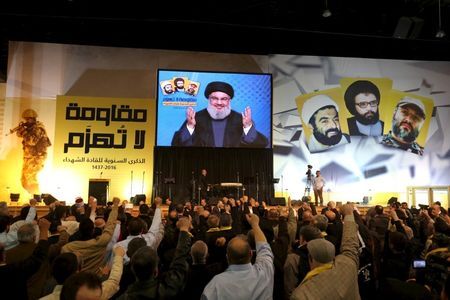
DUBAI (Reuters) – The six-member Gulf Cooperation Council (GCC) named Hezbollah a terrorist organisation on Wednesday, opening up the possibility of further sanctions against the Iran-allied group that wields influence in Lebanon and fights in Syria.
The Sunni Muslim dominated council – representing Saudi Arabia, the UAE, Bahrain, Kuwait, Oman and Qatar – already imposed sanctions on the Shi’ite Muslim group in 2013 after it entered Syria’s war in support of President Bashar al-Assad.
In Wednesday’s announcement, GCC Secretary-General Abdullatif al-Zayani said the council would now "take the necessary measures to implement its decision … based on anti-terrorism laws applied in the GCC and similar international laws".
Zayani did not specify what action might follow, but Saudi Arabia, the biggest power in the grouping, last week said it had blacklisted four companies and three Lebanese men for having links to Hezbollah.
Zayani accused Hezbollah of committing "hostile acts" against GCC states, including recruiting young men to carry out "terrorist attacks, smuggling weapons and explosives, stirring up sedition and incitement to chaos and violence".
Individual members of the Gulf Cooperation Council have already labelled Hezbollah a terrorist group.
There was no immediate reaction from Hezbollah. But a day earlier, its leader Sayyed Hassan Nasrallah had said Saudi Arabia had pushed Lebanon into a new phase of political conflict by announcing it was suspending an aid package to the Lebanese army.
Nasrallah also stepped up criticism of Saudi Arabia, accusing it of directing car bombings in Lebanon.
Leading Sunni power Saudi Arabia and its Shi’ite regional rival Iran compete for influence across the region and back different factions in divided Lebanon.
Former Lebanese Sunni prime minister Saad al-Hariri stopped short of publicly endorsing the Saudi decision, but criticised Hezbollah for its involvement in Syria and its alleged involvement in Yemen which he described as "unlawful, criminal and terrorist".
(Reporting by Sami Aboudi; additional reporting by John Davison, Mariam Karouny, Laila Bassam in Beirut; Editing by Larry King and Andrew Heavens)



